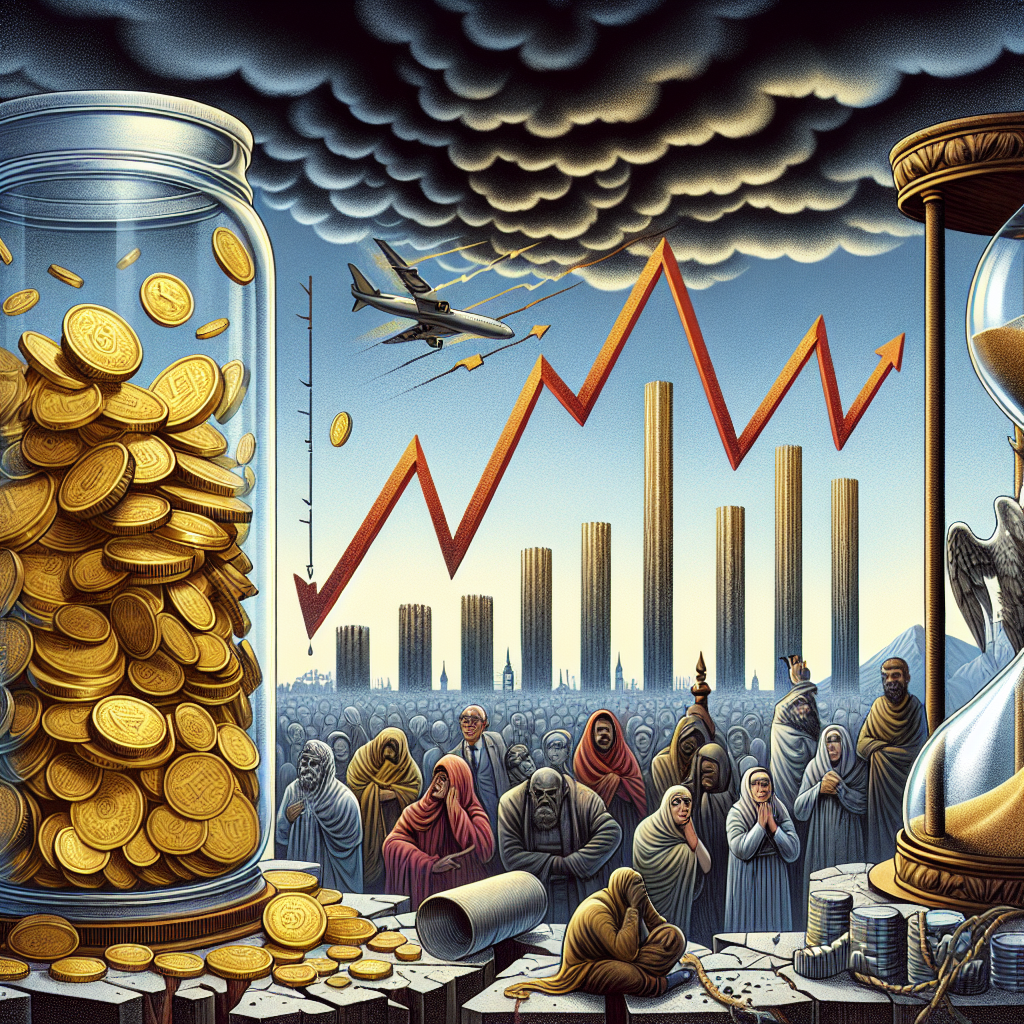A recession is a period of economic decline characterized by a decrease in business activity, employment, and overall prosperity. It is a significant downturn in the economy that can have far-reaching consequences for individuals, businesses, and governments. There are several factors that can contribute to the onset of an economic recession, and understanding these causes can help policymakers and individuals navigate through these challenging times.
One of the primary causes of an economic recession is a decline in consumer spending. Consumer spending is the backbone of any economy, and when people start to cut back on their purchases, businesses suffer. This can lead to layoffs, reduced production, and ultimately a decrease in overall economic output. There are several reasons why consumers may cut back on spending during a recession, including job loss, uncertainty about the future, and a desire to save more money in case of further economic turmoil.
Another common cause of economic recessions is a decrease in business investment. When businesses are uncertain about the future, they may postpone major investments in new equipment, technology, or expansion projects. This can lead to a slowdown in economic growth and job creation, as businesses become more cautious about taking on new projects. Additionally, a decline in business investment can have a ripple effect throughout the economy, as suppliers and service providers may also see a decrease in demand for their goods and services.
A third major cause of economic recessions is a decrease in exports. Many economies rely on international trade to drive economic growth, and when global demand for goods and services decreases, countries that rely heavily on exports can see a significant downturn in economic activity. Several factors can contribute to a decrease in exports, including trade disputes, changing consumer preferences, and economic instability in key trading partners.
Financial crises can also trigger economic recessions. A financial crisis occurs when there is a significant disruption in the financial system, such as a banking collapse or a major stock market crash. These events can have widespread effects on the economy, as businesses struggle to access credit, consumers become more cautious about spending, and overall economic activity grinds to a halt. The Great Recession of 2008, for example, was triggered by a financial crisis in the United States that spread throughout the global economy.
Political instability can also contribute to economic recessions. When governments are unable to provide stable leadership and effective policies, businesses may become hesitant to invest and consumers may become nervous about the future. Political instability can lead to uncertainty in the economy, as businesses weigh the risks of operating in a volatile environment. Additionally, political decisions can have far-reaching effects on the economy, as changes in tax policy, trade agreements, and regulations can impact businesses and consumers alike.
Finally, natural disasters can also trigger economic recessions. When a major disaster strikes, such as a hurricane, earthquake, or pandemic, the effects can be devastating for the economy. Businesses may be forced to shut down, consumers may be unable to spend money, and overall economic activity may grind to a halt. Natural disasters can lead to widespread job loss, decreased consumer confidence, and a decline in overall economic output.
In conclusion, economic recessions can be caused by a variety of factors, including a decline in consumer spending, a decrease in business investment, a drop in exports, financial crises, political instability, and natural disasters. Understanding these causes can help policymakers and individuals prepare for and navigate through challenging economic times.
FAQs:
Q: How long do economic recessions typically last?
A: The length of an economic recession can vary depending on the severity of the downturn and the underlying causes. Some recessions may only last a few months, while others can stretch on for several years.
Q: What can governments do to prevent or mitigate economic recessions?
A: Governments have several tools at their disposal to help prevent or mitigate economic recessions, including fiscal policy measures such as tax cuts and increased government spending, monetary policy measures such as interest rate cuts and quantitative easing, and regulatory reforms to help stabilize the financial system.
Q: How can individuals protect themselves during an economic recession?
A: Individuals can protect themselves during an economic recession by saving money, avoiding unnecessary debt, diversifying their investments, and staying informed about the economy. Additionally, seeking professional financial advice can help individuals navigate through challenging economic times.
